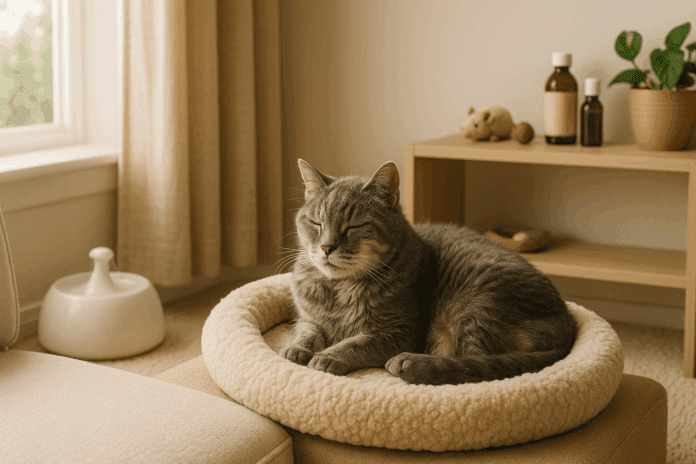As cats age, their needs change dramatically, and Dr. Elsey’s has been at the forefront of addressing these changes. From joint health to special diets, this article covers how Dr. Elsey’s products and insights are tailored to give senior cats the best possible care, ensuring a long and comfortable life.
Our aging feline companions require specialized care to ensure their golden years are filled with health, comfort, and love. Senior cats—generally defined as cats aged seven years and older—experience changes in their bodies and behaviors that can affect their well-being. Understanding these changes and how to adapt your care routine is critical for maintaining their quality of life. In this comprehensive guide, we’ll explore the unique aspects of senior cat care, from common health issues to nutrition and mental health.
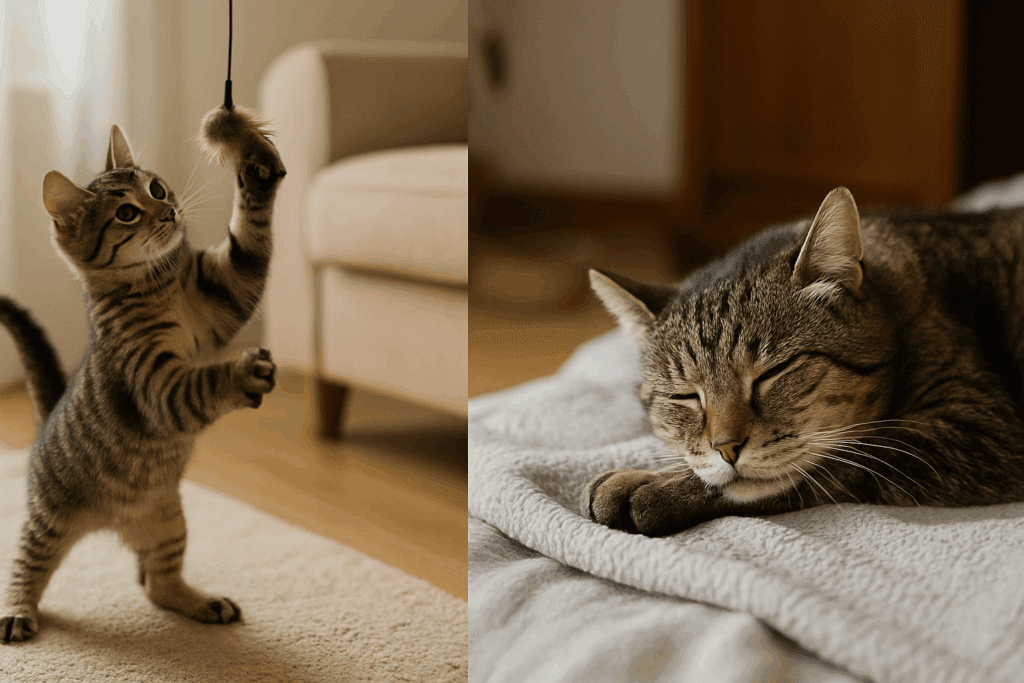
Aging in Cats: What To Expect
Cats are known for their resilience and longevity, with many living well into their late teens or even early twenties. However, like humans, aging brings about physical and mental changes that can affect your cat’s overall health.
Physical Changes
As cats age, their bodies begin to slow down. You may notice that your senior cat isn’t as spry as they once were or that they sleep more often. Their immune system may weaken, making them more susceptible to infections and illnesses. Additionally, senior cats often experience changes in their coat, such as thinning fur or graying.
Weight gain or loss is another common issue among senior cats. According to the Feline Veterinary Medical Association (FelineVMA), many older cats may either gain weight due to reduced activity or lose weight due to underlying health conditions. Monitoring your cat’s weight and adjusting their diet accordingly is vital to their health in later years.
Behavioral Changes
As your cat ages, you may also notice changes in behavior. Some cats become more withdrawn or anxious, while others may become more vocal, especially at night. These behavioral changes can be linked to cognitive dysfunction syndrome (CDS), which is similar to dementia in humans. According to a study published by the Journal of Feline Medicine and Surgery, as many as 28% of cats between 11 and 14 years of age show signs of CDS, and this percentage increases with age.
Increased irritability or aggression may be a result of underlying pain from conditions such as arthritis, dental disease, or vision and hearing loss.
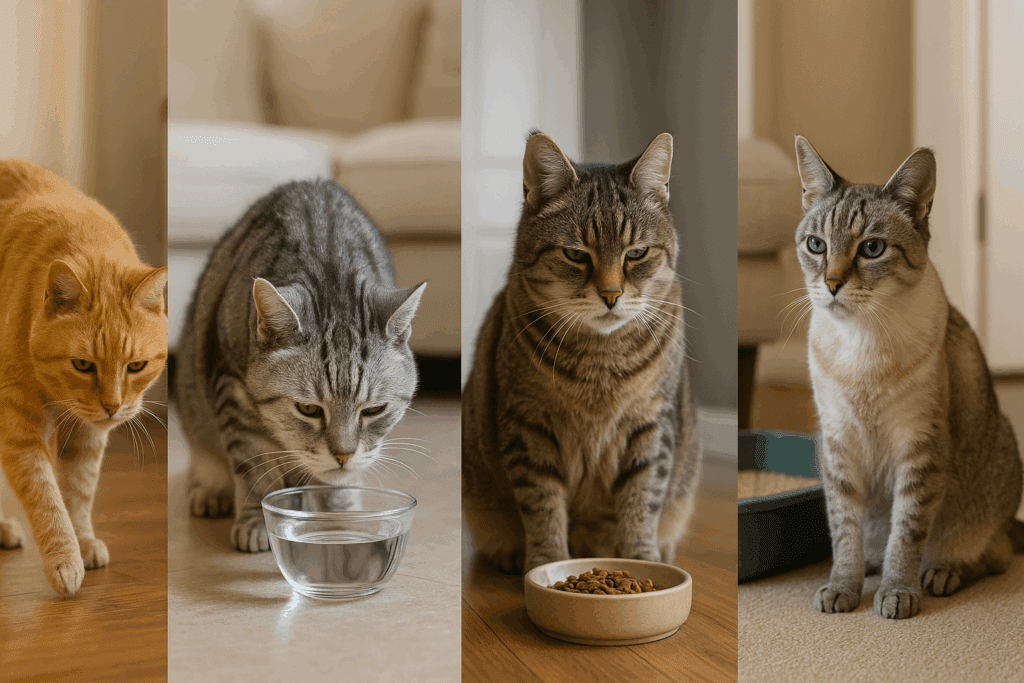
Common Health Conditions in Senior Cats
Senior cats are prone to various health conditions, many of which can be managed or treated with early detection. Regular veterinary checkups, ideally twice a year for senior cats, are crucial for catching potential issues early.
Arthritis
Arthritis is one of the most common conditions affecting older cats. This degenerative joint disease can cause discomfort and limit mobility. Cats with arthritis may be less likely to jump onto furniture or may have difficulty climbing stairs. A study published by the American Veterinary Medical Association (AVMA) found that 90% of cats over the age of 12 show radiographic evidence of arthritis.
To help manage arthritis, Dr. Elsey’s offers litter solutions designed specifically for older cats, including products that reduce tracking and make it easier for cats with limited mobility to use the litter box comfortably. Dr. Elsey’s Senior Litter is formulated with these needs in mind, featuring a finer grain, which provides multiple benefits to senior cats including enhanced stability in the litter box that reduces arthritic discomfort and maximum comfort on sensitive paws.
Kidney Disease
Chronic kidney disease (CKD) is another prevalent condition in aging cats. According to the International Renal Interest Society (IRIS), CKD affects approximately 30% of cats over 15 years of age. CKD can lead to increased thirst, excessive urination, weight loss, and lethargy. Early detection through regular blood work and urine tests is essential in managing this disease.
Hydration is a key factor in managing CKD. Dr. Elsey’s has long advocated for proper hydration in cats, emphasizing the importance of wet food diets or adding water to dry food to help keep senior cats’ kidneys functioning well.
Dental Disease
Dental health is often overlooked in senior cats, but it plays a crucial role in their overall well-being. Periodontal disease affects more than 70% of cats over the age of three, according to the American Animal Hospital Association (AAHA). Senior cats are particularly susceptible to dental problems, including gingivitis, tooth decay, and resorptive lesions, which can be painful and lead to eating difficulties. Regular dental checkups and professional cleanings, along with at-home dental care, are necessary to prevent these issues.
Hyperthyroidism
Hyperthyroidism, a condition caused by an overactive thyroid gland, is common in senior cats. It can result in weight loss despite an increased appetite, hyperactivity, and restlessness. According to the Cornell University Feline Health Center, hyperthyroidism affects about 10% of cats over the age of 10. This condition is treatable, often with medication, diet changes, or, in some cases, surgery.
Routine thyroid screenings are an important part of a senior cat’s wellness plan. Early detection of hyperthyroidism can lead to better management and a higher quality of life for affected cats.
Diabetes
Diabetes mellitus is another common condition in senior cats, especially those who are overweight. This condition is characterized by an inability to regulate blood sugar levels and can result in excessive thirst, frequent urination, and weight loss. The AAHA notes that feline diabetes is becoming increasingly common due to the rise in obesity among domestic cats.
Dr. Elsey’s offers valuable nutritional advice for managing diabetes in cats, including the importance of a low-carbohydrate, high-protein diet. Their cleanprotein line of cat food is formulated to help cats maintain a healthy weight and regulate blood sugar levels.
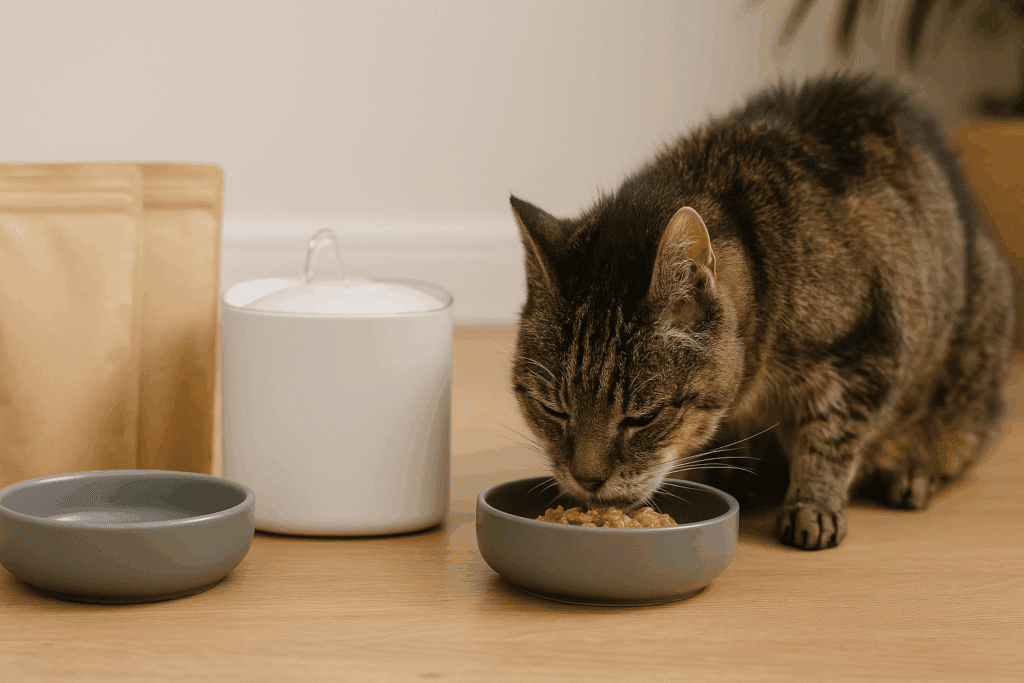
Nutrition For Senior Cats
Proper nutrition plays a vital role in supporting the health and longevity of senior cats. As cats age, their nutritional needs change, and it’s important to adjust their diet accordingly.
Protein Needs
Protein remains an essential component of a senior cat’s diet, as it helps maintain muscle mass and overall health. However, the source and quality of protein are crucial. Dr. Elsey’s cleanprotein cat food is specifically formulated with high-quality animal-based protein, which mimics the natural diet of cats in the wild. This helps support lean muscle mass and prevents weight gain in less active senior cats.
Hydration
As mentioned earlier, hydration is especially important for senior cats, particularly those with kidney disease or urinary issues. Wet food is often recommended for older cats, as it provides additional moisture and can help prevent dehydration. In addition, providing fresh water at all times is essential.
Special Diets
Senior cats with health conditions such as diabetes, kidney disease, or hyperthyroidism may require special diets. For example, cats with kidney disease often benefit from a low-phosphorus diet, while diabetic cats may need a low-carbohydrate, high-protein diet. Always consult with your veterinarian to determine the best dietary plan for your senior cat’s specific needs.
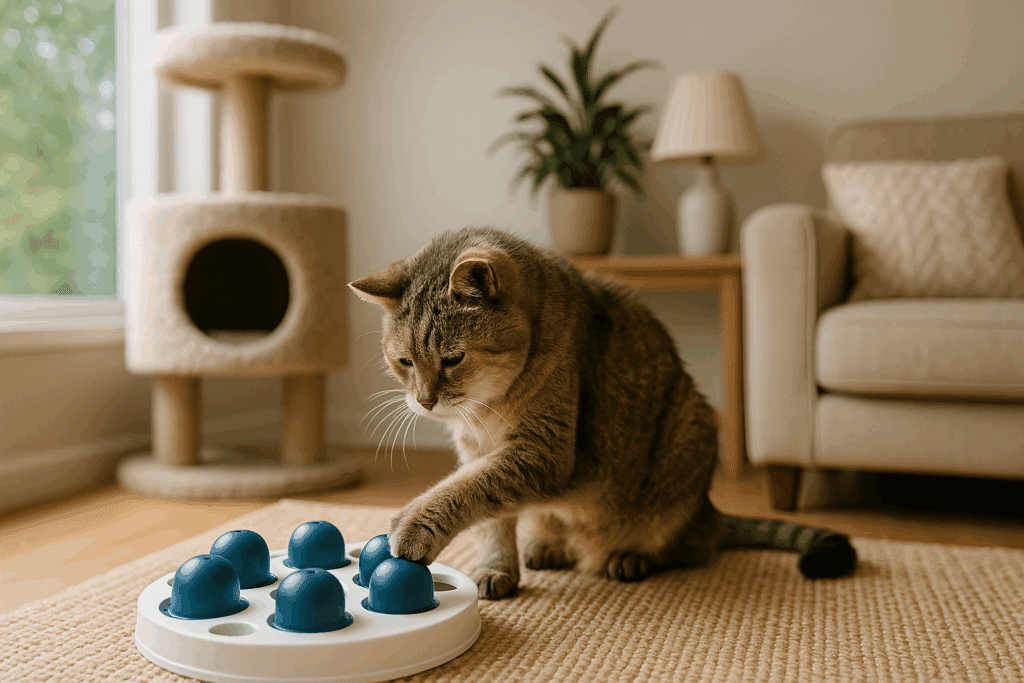
Mental Health and Enrichment for Senior Cats
Just as physical health is important, so too is the mental well-being of senior cats. Cognitive dysfunction, anxiety, and depression are all potential challenges as cats age. Keeping your senior cat mentally stimulated is key to preventing cognitive decline. For example, interactive toys, puzzle feeders, and regular play sessions can keep your cat’s mind sharp. Adequate mental stimulation and a stress-free environment can help keep your senior cat happy and engaged.
Dr. Elsey’s: A Leader in Feline Health and Wellness
For over 30 years, Dr. Elsey’s has been a trusted name in feline care, offering a wide range of products designed to improve the health and well-being of cats. Dr. Elsey, a feline-only veterinarian, has dedicated his career to understanding the unique needs of cats and creating solutions that address their health, comfort, and behavior. Dr Elsey’s products are designed with the latest research in feline health in mind, ensuring that your senior cat receives the best care possible. To learn more about Dr. Elsey’s products and their approach to feline wellness, visit https://www.drelseys.com/.
Conclusion: Caring for Your Senior Cat
Senior cats require special attention and care to thrive in their later years. By staying proactive about their health, providing a nutritious diet, and creating an enriching environment, you can ensure that your cat enjoys a high quality of life well into old age. Dr. Elsey’s, with their expertise and dedication to feline wellness, offers valuable resources and products that make caring for senior cats easier and more effective.
Further Reading:
1. “Senior Cat Care Guidelines” – Journal of Feline Medicine and Surgery
2. “Hyperthyroidism in Cats” – Cornell Feline Health Center
3. “Diagnosis and Management of Feline Osteoarthritis” – Today’s Veterinary Practice

